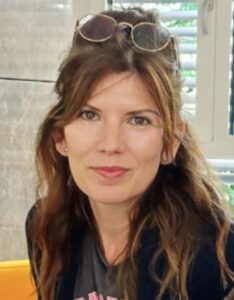Biological sex and microbiota drive DNA methylation patterns in the mouse liver
How the gut microbiota and its host communicate and react together to environmental stimuli is essential to understand a mammalian holobiont. In a biomedical context, such communication might be a reason for staying healthy, if it is balanced, or associated with diseases when the communication is disrupted. Microbiota and host produce metabolites that can regulate and limit epigenetic enzymes, controlling epigenetic marks in the host. Using a germ-free mouse model, including males and females, we investigated how biological sex and microbiota status influenced the “microbiota-nutrient metabolism-host epigenetic” axis of communication. We studied microbes, metabolism, epigenetic marks and gene expression in the host, focusing on the liver as target tissue, through a multi-omics and correlational analysis approach. Our results show the interaction of biological sex and microbiota in controlling the levels of DNA methylation in an additive manner. Where males are hypomethylated compared to females, and where the presence of microbiota accentuates this pattern in both sexes, being more pronounced in males. Males without microbiota present a feminised pattern of gene DNA methylation and expression. We have also observed a strong positive correlation between the levels of host DNA methylation in genes involved in testosterone degradation, and the Ruminococcaceae family, more abundant in males than females. Altogether, we propose Ruminococcaceae as a key ecological player in the holobiont ecosystem, influencing host gene regulation in a sex-dependent manner, through the modulation of DNA methylation levels of steroids degradation genes.
Short bio
Joan has studied biology at the University of Girona, where he worked with Archaea. Then he worked as a scientist in a Belgian company of cancer diagnostics based on DNA methylation. Then he gave service at Imperial College London in a genomic facility, using Illumina chemistry and serving a range of biomedical research projects. And finally Joan has been awarded a Marie-Sklodowska-Curie to pursue his PhD at Oscar Yanes laboratory studying the relationship host-microbe using a germ-free mouse model.
Laboratory of the speaker
MIL@B Research Group, Rovira i Virgili University, Tarragona, Spain
Invited by
Sylvie Rabot




